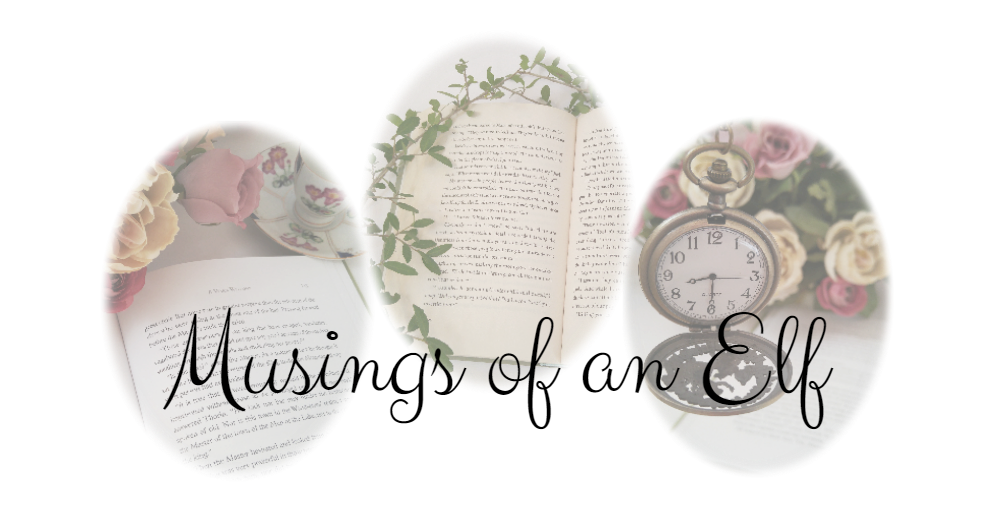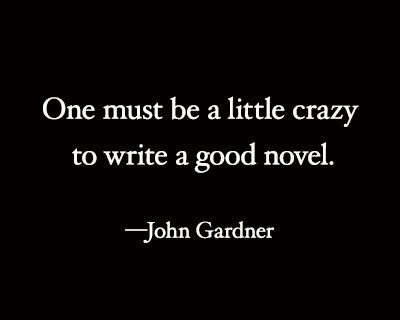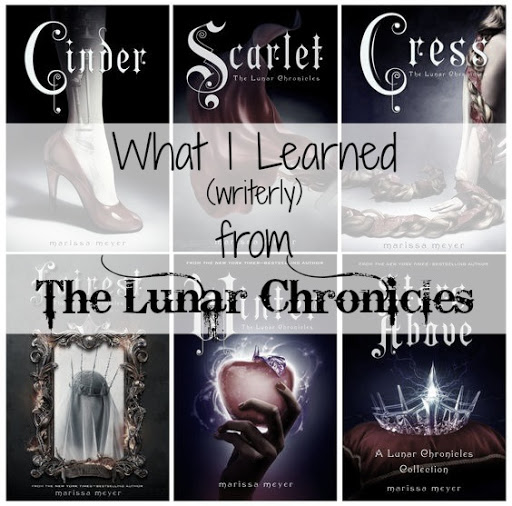Last week I posted about being brave and writing the things we personally love. That got me thinking: “What do I love to write about?” Well, that’s a good question. And since I love lists, I decided to make a list of story elements I love to read and write. It’d be very useful to have a handy list of some of my favorite story things to keep in mind whenever I’m plotting a new book. Then I thought, why not post the list? Because, hello? books and lists are like my favorite things. So!

Convoluted Plots
On occasion, I enjoy a fun, simple little story. But the majority of the time, I absolutely crave complexity. I want a thousand different plot threads all twisting and tangling together. I want ginormous wars with three or four different sides. I want dozens of plot twists that absolutely blow my mind. I want a sense of vastness. I want depth. As a result, I tend to lean in favor of larger books or series. Small, standalone stories are often too short to give that scope of broadness. Now, that is absolutely not always the case. Many authors are extremely skilled in packing a whole lot of awesome in small packages, which is fantastic. (I wish I had that talent.) But most of the time I get more out of series.
Connections
This kind of goes along with the big plot thing. I get ridiculously excited when a story reveals all those half dozen different plots each actually connect in the end. Those two different people we’ve been following on separate adventures for a while? They were childhood friends. That character over here that died was actually the sister of the character over there. And so on and so forth. Such connections are so fun, make great plot twists, and can add a lot of depth to the story.
Imaginative Worlds
J.R.R. Tolkien is the father of fantasy for good reason. Not only did he weave loveable characters and beautiful stories, but he spent so much time creating an enormous, complex world. The very thought of his dedication to world-building blows my mind. I love, love, love stories with big, beautiful, fascinating worlds. You can always tell if an author worked hard on world-building or not. And this doesn’t just apply to fantasy. Suzanne Collin’s futuristic version of North America in The Hunger Games was heavily thought out. It feels so real. Jill Williamson in her The Safe Lands trilogy did the same. It’s set in the not-too-distant future of our world, but the unique technology and even lingo Mrs. Williamson created just brings the novels to life. (Though I’ve actually only read the first book, but I plan on remedying that soon!) Creative, well-thought-out worlds can make a story for me. And I really admire authors who manage it, because that’s one of my biggest weaknesses.
Character Arcs
This one! This is probably my most favorite story element in the history of story elements. I’m obsessed with big character arcs. And not just the bad-guy-becoming-good ones. I’m also fascinated by decent people turning into villains. I love it all! But of course, watching a villain turn over to good is so, so satisfying. I always lean in favor of anti-heroes. If there’s an anti-hero in a story, almost every time he or she becomes my favorite character. Watching these people slowly turn away from their own selfishness to join the good side just. . .AGH. I can’t get enough of it! But there’s other types of character arcs as well. Such as a hero learning a valuable lesson and becoming even better. Or a semi-villain turning over to complete evil. I will read it all! If there’s a good character arc in a novel, there’s a 97.4% chance I’ll love that story.
Drama
You probably picked up from my last post that I enjoy the drama. In real life? Uh, no thank you. But in fiction? Gimme all the drama! Give me the tension and strife and danger around ever corner. Put me on the edge of the seat. Make me feel something. If a story doesn’t give me emotions, I’m not going to enjoy it. I actually want a story to make me an emotional wreck. I like stories that make me cry. Or cringe. Or even scream on occasion. The deeper a story makes me feel, the more and more I’ll love it. I’m not much on light reads. Destroy my emotions, please and thank you. But some stories can lay it on a little too thick, which brings me to. . .
Humor
Yes, I want all the drama, but I want a mix of emotions. I don’t want to be depressed the entire story. I love to laugh. (Though, really, does anybody not enjoy laughing?) Little jokes and fun characters and hilariously embarrassing moments in between the emotional trauma is a perfect balance to keeping me happy. Some stories slather on the sadness so much it just gets tiresome. Using The Hunger Games as an example again, those are some of my absolute favorites stories but I would have loved a bit more humor. I can think of about two parts in the whole trilogy (both involving Finnick) that made me chuckle. As my brother said one day, it almost felt as if the author was trying a little too hard to make us readers depressed. But again, they’re amazing books, I just would have loved a few lighthearted jokes every now and again.
Happily-Ever-After
Speaking of not too much drama, I’m a sucker for a good happily ever after. There’s nothing like reading that last page of a novel before closing the book and breathing a satisfied sigh. Now, I understand not everything can turn out well. Characters may have died, others may have scars for the rest of their life. After certain ordeals, nothing can ever be perfectly happy. I’m okay with bitter-sweet endings if it has to be that way. But what I’m not okay with is endings that leave me feeling empty. Reading takes a lot of time, and I don’t want to waste my valuable time reading something that just leaves me depressed and hollow by the end of it all. I don’t want to fall in love with the characters only to have them all die or their lives be ruined forever. I want to be shown that there is hope in this dark world, that things can be okay. Traumatizing middles to books are fine. Like I said, I want ALL the drama and feels. But when I finish a book, I want some form of satisfaction. There’s too much depression in this world. Books are my escape from that.
Character Relationships (of all kind)
What really bugs me is when characters in novels really don’t seem to have any sort of bond with each other. What’s more fun than a deep friendship? Or some brotherly and sisterly love? Or a bonded family? And most of us are pretty partial to romantic couples, am I right? But hey, the relationships don’t have to be all positive. What about some rivals? Some strife between families? I’m even one of those few who actually enjoys a love triangle (I know, it’s true). Actually, I’ll take a love quadruple! If it adds tension and is entertaining, I want it. Interesting character dynamics make the stories for me. Relationships with our friends and family and co-workers and everyone we come across shapes who we are. I just don’t enjoy stories where the author merely moves the characters along with so much action that they forget to give the characters deep interactions and complex relationships.
Admirable Heroes
I’ll admit, I have this pet peeve that has grown and grown through the years the more modern stories I’m introduced to. This could probably be a topic for a whole other post, but to sum it up: I’m tired of heroes with absolutely no morals. Now, like I said, I love me some anti-heroes, and I am all for making characters flawed. People aren’t perfect, and we want our character to feel real. Perfect characters drive me insane. I want flawed people. BUT if our supposed hero is living immorally and it’s never once portrayed as bad, that’s when I get veeery annoyed. I more see this in TV shows than books, but the problem is still there. What happened to the days of looking up to heroes? I read books to be inspired, to read about people that will motivate me to do better, to stand up for what I believe in and fight for good. These days we’re getting heroes that go off and live immoral, selfish lives in between the “saving the world” bits. Again, character that live wrongly are okay as long as there’s character growth and these wrong things are portrayed as just that—wrong. Character arcs are my favorite, remember? I have plenty of characters that do things I’d never do, but in the end I do try to make them turn from their sin. (And by that I mean I destroy their lives and completely break them until they have no choice. *cough, cough*) Anyways! (This is getting long.) Like I said, I could probably make a whole post about this. But the point is, I miss heroes that are admirable. Flawed, yes. But ones that learn from their mistakes, strive to do better, fight for the good. I miss heroes that I can look up to, and I absolutely love when I find books about people like that.
Character Centered
This is probably the biggest reason I love the YA genre the most. There’s something about YA books that centers so deeply on characters that I don’t see much in other genres. Intimate points-of-view are my favorite. I want to be inside the characters’ heads. I want to feel their emotions, to be right there alongside them. Stories that feel detached from the characters just don’t interest me at all. I want to see them grow, and hurt, and laugh, and form friendships, and fall in love. I want to become so attached to the characters that when I close the book I start missing them. The deeper a story gets into the characters’ lives, the more I’ll love it.
~ ~ ~
So, there we have it! My favorite story elements. Well, a few of my favorite elements. My list actually got a bit longer than I wanted, so I limited myself to ten for this post. I may just have to do another list with yet more one day. I seem to have a lot of story elements I love. I guess that’s not a bad thing though.
But, basically, characters are everything to me, if you didn’t notice. Being as how half my points had something to do with characters. That’s really why I read, for the people between the pages. If a book has every single point I listed—an epic plot, imaginative world, drama, humor, etc—but ignored the character bits, I wouldn’t enjoy it. A lot of people categorize stories as “plot driven” or “character drive”. But why can’t we have both? I want a big complex, epic plot with deep characters points-of-view and growth amidst it all. Those are always, always my favorites stories.
All right, I’ve shared more than enough of my thoughts. It’s your turn! Remember, these are only things I personally enjoy, not things that should be in every single story by any means! I’m allll for variety. So I want to know what some of your favorite story elements are. Do we share any? Do you absolutely detest some of my points? We all have different tastes, and that’s awesome. So do tell! I seriously want to know.







